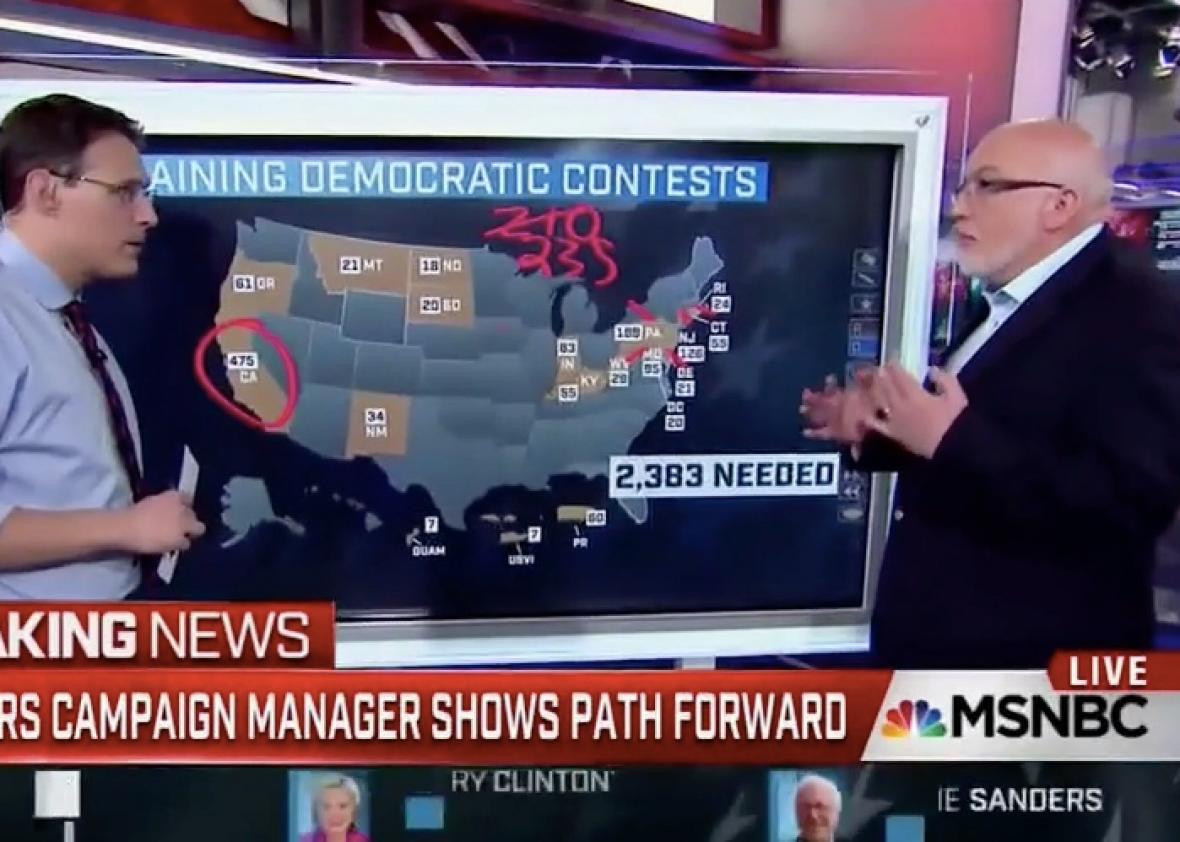The Bernie Sanders campaign had been keeping silent following its loss to Hillary Clinton in New York on Tuesday night, a contest it really needed to win if it wanted eventually to catch up to Clinton in pledged delegates. Tough loss, don’t want to talk to the media: fine. But then something unusual happened around 10:30 p.m. on MSNBC: Sanders’ own campaign manager, Jeff Weaver, appeared with network analyst Steve Kornacki and his interactive delegate map to explain Sanders’ path to the nomination. This was a bold move for Weaver, since Steve Kornacki is a smart person who was unlikely to let him spin without challenge.
And a lot of spin, at this point, is necessary.
Kornacki asked Weaver to lay out his path for overtaking Clinton’s pledged delegate lead—she’s roughly 235 ahead after New York—through the remaining contests. Weaver pointed to California first, saying, “a big win there would get you lots of delegates.” That’s true. The only problem is that Sanders isn’t the candidate positioned for a big win there. He then pointed to Oregon and some smaller Western states where Sanders is likely to win, along with Indiana and New Jersey, where Sanders’ chances are dimmer. When Kornacki pressed him about how he intends to win the remaining Northeastern states given their similarity to New York, Weaver explained that New York was different because of Clinton’s “special relationship” with the state. He nearly promised a win in Pennsylvania before correcting his language. “But I think you have to win—certainly, Pennsylvania, becomes a very, very important state in this process.”
Once it became clear that Weaver did not have a real explanation for how Sanders would surpass Clinton in pledged delegates, the conversation shifted to super delegates. And Weaver, as he’s said before, promised to fight to the convention in order to sway them.
KORNACKI: Because you know as well as I do, if June 7 comes, and suppose Hillary Clinton has won the pledged delegate count and won the popular vote, there are going to be calls for you, the Sanders campaign, to make a decision to unite around her. You’re saying instead of that, you will spend those months, those weeks in the summer trying to flip superdelegates to Bernie Sanders before the convention?
WEAVER: At this point, yes, absolutely.
It’s hard to tell whether all this bluster from the Sanders campaign about fighting to flip superdelegates through the convention is serious, or just a way to motivate supporters to keep the faith. “At this point, yes, absolutely,” the Sanders campaign plans to take it to the convention. Maybe at a later point—say, once primary season is wrapped up on June 7—the campaign will have changed its mind.
